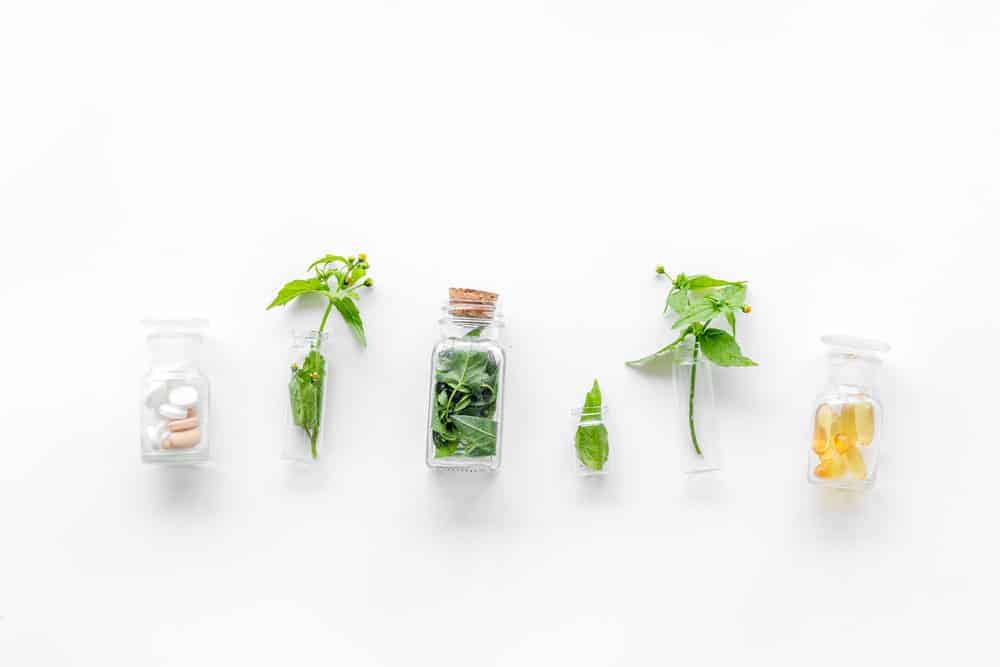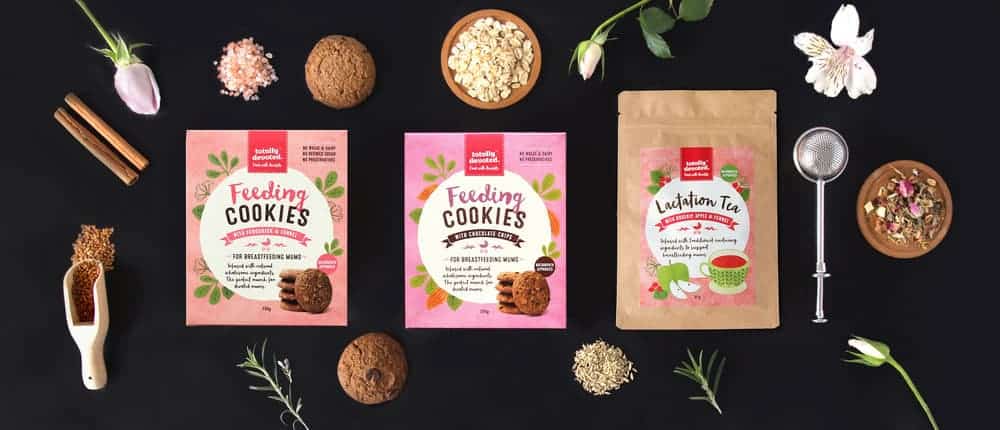
23 Apr Galactogogues – Do They Increase Breastmilk Supply?
According to the WHO (World Health Organization), as well as many other paediatric and nutrition academies, including the Australian Breastfeeding Association, exclusive breastfeeding is recommended for a child’s first six months of life. After this, it should be continued along with complementary foods until two years of age or even beyond, as long as the mother and child want to continue.
However, despite numerous advocacy attempts, breastfeeding rates are relatively low worldwide. If we look at Australia in the year 2010, 96% of mothers initiated breastfeeding, but surprisingly, only 15.4% of babies were exclusively breastfed to 6 months!
And why is that? How can we explain that almost all new mums initiate breastfeeding, but only a few reach a full exclusive and successful breastfeeding experience? Well, there are many causes for unsuccessful breastfeeding, but according to statistics, an inadequate breast milk supply would be the most common self-perceived one.
So, you want to breastfeed your baby, but you feel that you don’t have enough milk to feed them? What can you do to increase breast milk production in a natural way?
Let’s talk about a very strange word…galactogogues.
ARE HERBS THE SOLUTION TO LOW MILK SUPPLY?
Given that a low milk supply is one of the most common causes of exclusive breastfeeding interruption, both parents and health professionals often look for alternatives that can help solve this problem.
Galactogogues are medications, herbal products or other substances believed to enhance breastmilk production. If you’re breastfeeding, somebody probably has already told you to try fenugreek which is the most popular herb used by women in Australia, with other herbs like fennel, brewer’s yeast and milk thistle being listed too.
However, it’s important to address that despite their well known use, scientific evidence is lacking, their safety and efficacy hasn’t been tested on large groups of breastfeeding mothers, and their use is mostly due to traditional use or anecdotal evidence which encourages mothers to try these substances while breastfeeding.
FENUGREEK
Fenugreek has been used for more than half a century and it would be the one which has been studied the most, although there’s still conflicting evidence of its efficacy. It has been listed as moderately safe, but it is not clear how much a mother should take or how to take it.
Some mothers who have used fenugreek, have experienced gastrointestinal symptoms as side effects, mainly diarrhoea, and it can also decrease blood sugar levels in the mums too. On the other hand, women with thyroid issues or who take medication to treat hypothyroidism, need to be aware that fenugreek consumption can actually make her thyroid problems worse and actually reduce her milk supply. On a personal note, this happened to me!
Fenugreek has been shown to stimulate uterine contractions, so it is not recommended during pregnancy.
MILK THISTLE
Milk thistle is another old known galactagogue which has been gaining popularity lately. Some studies, more done on animals than in humans, have granted it lactogenic properties, or in other words milk producing effects. Apparently, milk thistle is poorly absorbed orally, however, so it’s very unlikely to adversely affect the breastfed child. It has been tested on some babies who were in the NICU (Neonatal Intensive Care Unit) and it increased milk production in mothers without any significant side effects.
Some mothers who used milk thistle have experienced mild gastrointestinal discomfort, and in some cases, it could cause skin reactions or allergies for those who are already predisposed, so it is always best to talk to a health professional if you have concerns.
BREWER’S YEAST
Brewer’s yeast is one of several galactagogue herbs usually considered safe for nursing mothers. More research would be needed, but so far it seems safe to take during breastfeeding and has helped most women with milk production.
It has other nutrient benefits too, in that this supplement is rich in protein and iron, which are important nutrients while the mother’s body is busy making milk! It’s still advised, however, that the mother continue taking an iron supplement if she is anaemic or iron deficient.
FENNEL
Another widely used galactagogue, which is promoted not only for increased milk volume, but also increasing the fat content in breastmilk – which might be good to improve weight gain in the baby. Once again, there are few studies published regarding fennel use in lactation, but the little research done so far has not shown or reported any adverse effects. In fact, fennel has been “generally recognized as safe” by the FDA (Food and Drug Administration) of America.
Other foods and herbs that are commonly used to increase milk production are garlic, ginger, and moringa; along with oats, raspberry leaves, basil, and alfalfa.
WHAT ABOUT THOSE LACTATION COOKIES RICH IN OATS?
Oats and oat products for example, are recognized because of their helpful effects in nursing moms. They contain saponins, beta-glucan and plant estrogen, which are compounds that may have a positive effect on the hormones which support breast milk production. If you want to include oats in your meal plan, you can find them in oatmeal or lactation cookies which are also a delicious in-between-meal snack or use rolled oats to form part of your breakfast muesli or make a berry, chia and oat porridge! Yum!
As you can see by now, all these foods or herbs seem promising to enhance breastmilk supply, but there still needs to be more scientific studies to understand the safe doses and if they really do work.
WHAT SHOULD MUMS DO THEN TO INCREASE THEIR MILK SUPPLY?
If a mother is concerned about her milk production, the first step is to identify all the factors contributing to it. Ask a lactation consultant for proper and reliable information about feeding techniques, positioning, and length of feeding.
Also remember that the emotional wellbeing of a mother is important too, as stress and anxiety can contribute to reduced milk production, that’s why mums should also be encouraged to learn relaxation and breathing techniques.
No matter how much herbs or medication can help, undoubtedly, the most important way to keep a good milk supply is to:
- be skin-to-skin with your baby
- feed your baby on-demand, meaning that milk should be given as often as the baby wants
- increase the number of feeds per day/night
- increase the duration of feeding can help too
- make sure to completely empty the breasts
The more often you feed your baby, the more milk you’ll make!
FINAL THOUGHTS
Fenugreek, fennel, brewer’s yeast and all the other ones we talked about, may indeed help with milk production, but as mentioned, most of these herbal products are recommended based on anecdotal experiences, their clinical efficacy haven’t been proved, and the side effects on mums and babies are still unknown.
Before you start taking galactogogues to increase milk production, it is important that mums are evaluated and get breastfeeding counseling by an expert first. Ideally, this should be a lactation consultant, who can help her to identify what’s wrong in the breastfeeding process. There are many reasons why a mum’s milk supply might be low and using herbal galactogogues could just be a coverup of a current problem which won’t get solved by the use of them.
However, if you do still want to start trying lactation teas or cookies with galactagogues, contact me, as I am a stockist of the Yummy Mummy Food Company’s delicious all natural Lactation Teas and Feeding Cookies – wheat/dairy/egg free and free of refined sugars and preservatives. Perfect for those with allergies and intolerances.
You’ll also find these products used in my downloadable Breastfeeding Boosting Tips & Menu Plan that you can access here!
As the Academy of Breastfeeding Medicine says: “(…) when intervention is indicated for the dyad, modifiable factors should be addressed: comfort and relaxation for the mother, frequency and thoroughness of milk removal, and underlying medical conditions.”
Breastfeeding is a beautiful world, but sometimes it can be hard, mostly if you’re a new mum and it is your first time doing this.
My advice is don’t just turn to the Internet for help and information, look for expert advice and book an appointment with me to assess your breastfeeding dyad 🙂

REFERENCES
How long should I breastfeed my baby?. (2018). Retrieved from https://www.breastfeeding.asn.au/bfinfo/how-long-should-i-breastfeed-my-baby
WHO | Exclusive breastfeeding for six months best for babies everywhere. (2018). Retrieved from http://www.who.int/mediacentre/news/statements/2011/breastfeeding_20110115/en/
Department of Health | Breastfeeding. (2018). Retrieved from http://www.health.gov.au/breastfeeding
The Academy of Breastfeeding Medici. (2011). ABM Clinical Protocol #9: Use of galactogogues in Initiating or Augmenting the Rate of Maternal Milk Secretion (First Revision January 2011). Breastfeeding Medicine, 6(1), 41-49. doi: 10.1089/bfm.2011.9998
Galactagogues (substances claimed to increase supply). (2018). Retrieved from https://www.breastfeeding.asn.au/bfinfo/galactagogues-substances-claimed-increase-supply
Sim, T. F., Hattingh, H. L., Sherriff, J., & Tee, L. B. G. (2015). The Use, Perceived Effectiveness and Safety of Herbal Galactagogues During Breastfeeding: A Qualitative Study. International Journal of Environmental Research and Public Health, 12(9), 11050–11071. http://doi.org/10.3390/ijerph120911050.
Forinash AB, Yancey AM, Barnes KN, Myles TD. The use of galactogogues in the breastfeeding mother. Ann Pharmacother. 2012 Oct;46(10):1392-404. doi: 10.1345/aph.1R167.
Mortel M, Mehta SD. Systematic review of the efficacy of herbal galactogogues. J Hum Lact. 2013 May;29(2):154-62. doi: 10.1177/0890334413477243.
Fennel use while Breastfeeding | Drugs.com. (2018). Retrieved from https://www.drugs.com/breastfeeding/fennel.html
Penagos Tabares, F., Bedoya Jaramillo, J. V., & Ruiz-Cortés, Z. T. (2014). Pharmacological Overview of Galactogogues. Veterinary Medicine International,2014, 602894. http://doi.org/10.1155/2014/602894
Milk Thistle use while Breastfeeding | Drugs.com. (2018). Retrieved from https://www.drugs.com/breastfeeding/milk-thistle.html
Greenman, B. (2018). Fenugreek,Thyroid Problems And Breastfeeding. [online] Lactation Consultant NYC. Available at: https://www.breastfeedingwithlove.com/2015/02/15/fenugreekthyroid-problems-and-breastfeeding/ [Accessed 4 Jun. 2018].
Verywell Family. (2018). Can Eating Oatmeal Help You Make More Breast Milk?. [online] Available at: https://www.verywellfamily.com/oats-oatmeal-and-breastfeeding-431850 [Accessed 4 Jun. 2018].



Sorry, the comment form is closed at this time.